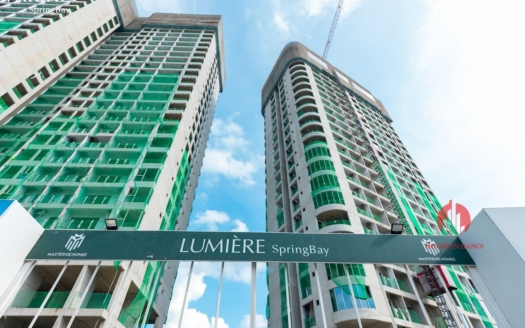Booking: Now Vietnam’s Most Popular Home Buying Method
Around the world, real estate developers adopt a variety of sales methods when launching new projects. These approaches differ depending on market conditions, buyer behavior, and cultural preferences. While the traditional method of publicly announcing the full price list remains common in some places, many markets now utilize alternative strategies, such as:
Reservation before unit selection
Lottery-based unit allocation
Internal registration or priority access
Public listing on property platforms
Phased release with gradual price increases
Expression of interest followed by allocation
In Vietnam, several years ago, the real estate market was dominated by the traditional sales model, where developers would announce an official launch date and release the entire inventory and pricing to the public. However, in recent years, rising demand and evolving sales and marketing strategies have led to a major shift. The traditional approach has been almost entirely replaced by the “reservation-before-selection” model. Locally, this method is widely referred to as “Booking”.

Why “Reservation Before Unit Selection” Has Become the Preferred Sales Strategy in Vietnam
Gauging Market Sentiment Through Pricing Strategy
When launching a new real estate project, developers typically introduce three price levels:
-
Rumor Price – a speculative price range, often leaning toward the upper limit, used early in the marketing phase.
-
Min–Max Price Range – a refined price band released either during the reservation phase or at the time of unit allocation.
-
Official Selling Price – the final published price used at the time of contract signing.
Before going to market, developers conduct internal research and preliminary assessments. By publishing a rumor price and collecting early reservations, they gather valuable insights into market demand and buyer willingness to pay. These data points inform pricing strategies and help optimize sales plans and marketing efforts.
Stronger Buyer Insights, Smoother Matching
In Vietnam, most developers sell through agencies rather than directly. As such, they rely on reservation data to understand buyer preferences and market absorption capacity. The number of reservations received—especially after releasing the rumor price—serves as a practical gauge of demand, allowing them to fine-tune the next pricing stage.
For buyers, the reservation process is also more personalized. Clients can indicate preferences such as number of bedrooms, floor level, and view orientation. This helps clarify their needs early, and in turn, developers or agents can recommend matching units. The result is a more streamlined and personalized experience for both parties.
For in-demand projects, buyers who skip the reservation phase often miss out or are left with limited unit options, as premium apartments are usually pre-matched with reservation holders.
A Powerful Marketing and Sales Control Tool
Reservation-based selling has also proven to be a highly effective marketing tactic. Depending on project popularity, the reservation phase may last from two weeks to two months, during which developers can sustain media coverage, build hype, and drive customer engagement.
Sales agents compete to gather as many bookings as possible, keeping buyer interest warm. Often, the number of bookings exceeds the total available inventory, creating scarcity and driving urgency.
Examples:
-
Lumi Hanoi Phase 1 received over 3,100 bookings for just 2,375 units.
-
The Senique gathered nearly 4,000 bookings for 2,150 apartments.
Such numbers generate buzz, reinforce the project’s perceived value, and create momentum for both current and future launches.
Reducing Risk in a Capital-Intensive Industry
Real estate development involves significant investment and operational risk. Developers must maximize certainty and minimize the chances of leftover inventory, which can lead to financial losses.
By using the reservation model, developers gain valuable pre-launch data, enabling better forecasting, smoother launch execution, and faster sell-through. This approach reduces the likelihood of unsold units and improves the overall success rate of a project.

Challenges of the “Reservation Before Unit Selection” Model
No sales strategy is without flaws. While the “reservation-before-selection” model is designed to benefit all parties — buyers, developers, and agents — it also brings several practical challenges that need to be acknowledged.
Oversubscription of Popular Units
In every project, there are always a few “hot” units — those with the best layouts, views, or positions — that attract disproportionate attention. These highly sought-after apartments often receive far more reservations than there are units available.
To manage this, developers may take different approaches:
-
Prioritize buyers who reserved early
-
Give preference to those who confirm their purchase the quickest
-
Use a lottery system to allocate high-demand units
Even with these methods, some buyers still miss out, despite having booked in advance. This can lead to frustration and disappointment, especially for buyers who were emotionally invested in securing a particular unit.

Lack of Pricing Clarity and Purchase Certainty
Homebuyers typically want transparency: a clear price and a clear path to decision-making. With this sales model, however, buyers often find themselves committing without knowing:
-
The final selling price
-
Whether they will actually secure their preferred unit
From the moment they place a reservation until the final allocation, they must wait and rely on updates from agents or brokers — a process that can feel uncertain and even stressful.
Some buyers prefer to avoid this ambiguity altogether. They wait until the full price list is released after the allocation phase. But by then, most of the desirable units are already sold, and only less favorable ones remain — creating a feeling of regret or missed opportunity.
Conclusion
The “reservation-before-selection” model offers many advantages in terms of sales momentum, data collection, and inventory control. But it also comes with drawbacks in transparency, fairness, and customer satisfaction, particularly when demand is high. For this model to remain sustainable, developers and agents must focus on clear communication, expectation management, and buyer trust throughout the sales journey.
Reservation-Based Buying Process: Step-by-Step Guide
Project Announcement & Rumor Price Released
The developer shares basic project information and a preliminary “rumor price” range. A booking/reservation phase is announced.
Reservation with Preferred Unit Selection
With guidance from an agent, the buyer selects a preferred unit type and places a reservation. This involves paying a booking fee — typically between VND 50 million and 200 million — to either the authorized agency or the developer. In most cases, the fee is refundable.
Information Updates During the Reservation Period
Throughout the booking phase, the buyer may receive updated project details. The developer will also announce the unit allocation date.
Unit Allocation & Final Decision
On allocation day, the buyer must stay in contact with their agent, review the available unit list, and respond quickly to confirm their selection.
-
-
If they proceed with the purchase, the booking fee will be converted into a non-refundable deposit.
-
If they change their mind or their preferred unit isn’t available, they may request a full refund of the booking fee.
-
Buyer Tips: How to Navigate a Reservation-Based Sale
Understand the Process
Ask your agent to explain the full timeline: from reservation to unit allocation, pricing disclosure, and contract signing. See all about buying real estate in Vietnam.
Set Clear Preferences
Define your must-haves (e.g. number of bedrooms, floor range, view direction) and communicate them clearly.
Clarify Refundability
Ensure you know whether the reservation fee is refundable — and under what conditions.
Be Realistic
If you’re targeting a “hot” unit, understand you may be entering a competitive pool. Consider backup options.
Stay Engaged
Keep in close contact with your agent during the matching phase. Prompt responses can give you an edge.












